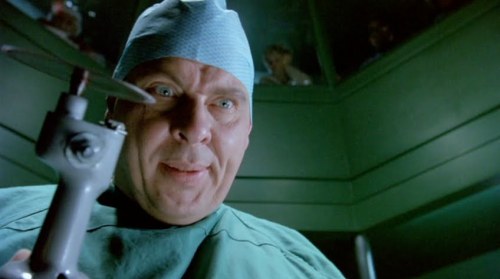One of the most important qualities your doctor can possess is your trust. If you don’t trust in his or abilities, there’s little point in continuing a relationship with your doctor.
What makes a trusting relationship?
Trust is something that builds over time. If your doctor doesn’t take the time to get to know you and your medical history, trust is difficult to build. When you walk into the doctor’s office and he or she greets you by name and asks you how your last round of golf went, it shows that your doctor listens and makes it a point to know you. He or she should know as much about your lifestyle as your health history. To an extent, one spills over into the other.
Breaking up
Don’t be afraid to separate from your current doctor if you feel the trust isn’t there. If your relationship is impersonal, if the doctor doesn’t even remember your name when you walk into the office, if he or she makes you feel like a cog on a never-ending wheel, it’s time to move on. You need a doctor who takes the time to talk to you, listen to you, and hear what you say.
What to look for
When it comes to finding Dr. Right, you need to approach the situation the same way you would when looking for Mr. or Ms. Right. You want a doctor who is compassionate, who has your best interests at heart, and who never makes you feel judged.
You shouldn’t feel like your doctor is judging you when you speak of your symptoms or lifestyle. This could cause you to leave out pertinent details that could cause a misdiagnosis, which is detrimental to your health.
Reliable support matters, too
Choosing a good doctor with whom to form a trusting relationship isn’t just about the doctor. It’s about the office as well. It is not your job to call and check on test results. It’s not your job to call and confirm appointments. If you find yourself doing this, the administrative team clearly has issues.
Additionally, rude office staff reflects poorly on the doctor. If you really like the doctor, you should speak to him or her about the issues you have outside the examination rooms.
It’s personal, but don’t take it personally
Your doctor needs to know some pretty personal things about you. When he or she how young you were when you had your first period, if you are exposed to cigarette smoke or were abused as a child, your doctor isn’t judging you. The answers to these questions can help your doctor diagnose other issues you might have. You’d be surprised how many medical answers lie hidden in past lifestyle factors.
Ask around
So how do you find a good doctor? One way is to ask for recommendations. Your friends, family members, and coworkers may be happy to provide you with a few names. Asking for recommendations from people you trust is a great first step to finding a good doctor.
What it comes down to
The relationship you have with your doctor is much like the relationship you have with your spouse. You have to have mutual trust to make it work. This person will learn and keep more personal information about you than almost anyone else on earth. The crucial difference is that your doctor needs this information to save your life.
